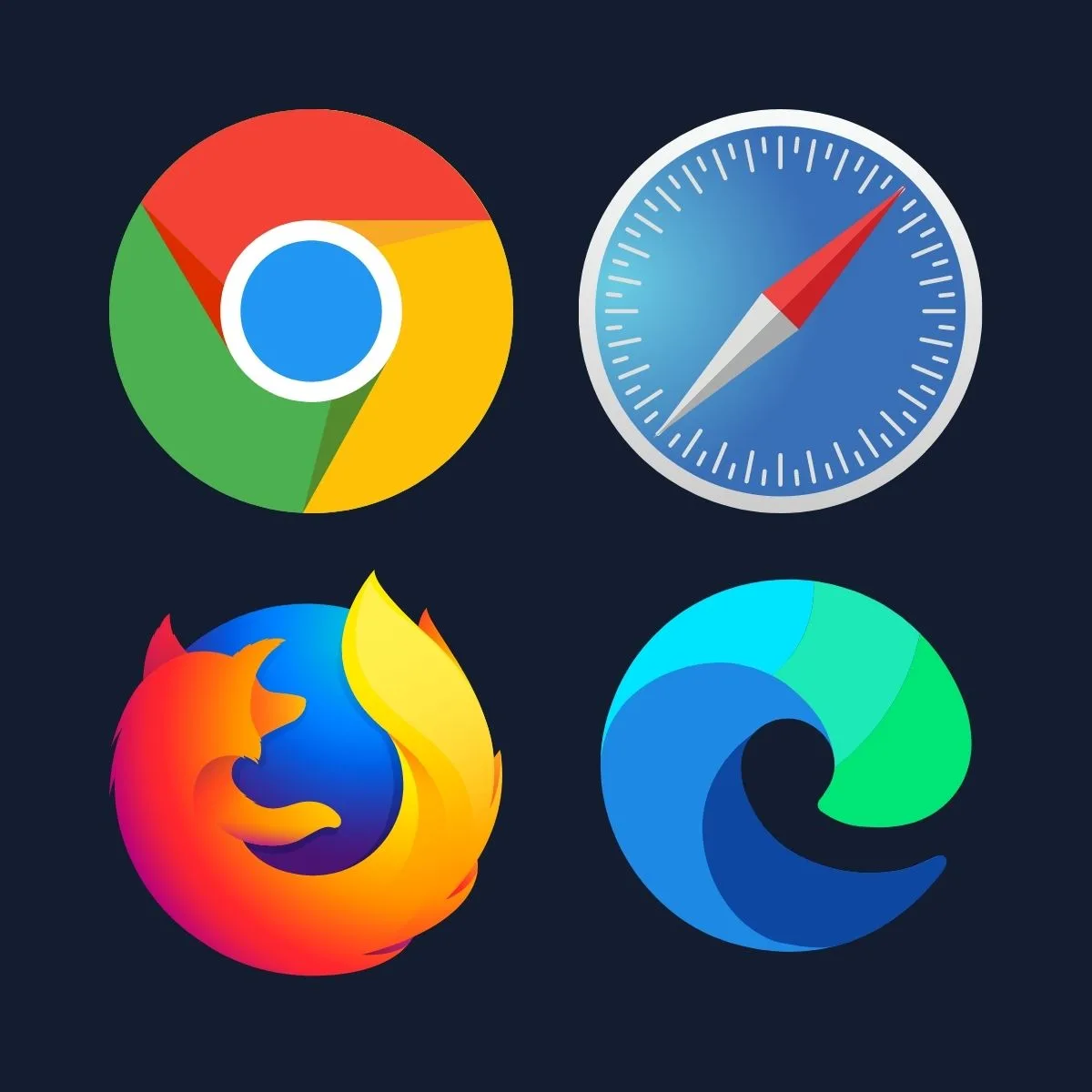With reports that Microsoft Edge is about to beat Safari to become the second most-popular browser, we take a brief look at what different browsers have to offer.
Google Chrome
The most popular of the browsers with a 65.38 per cent share of the market. Google Chrome is supported by Windows, macOS, Linux, Android, iOS. Its popularity may be closely linked to Google’s long-running effectiveness in terms of the quality of its search engine results. Some of its best features include the extensions and add-ons, the autofill features, cross-platform support and sync, and live captions. It also has some powerful security features – blocking dangerous mixed content (scripts an images) and warning if email has been compromised. Some tech commentators point to its main downside being that it can be resource (memory) hungry.
Microsoft Edge
Edge is supported by Windows, macOS, Android, iOS, (with Linux coming soon), and bundled as part of Windows. With Chromium at its core, it is fast, has good privacy and security measures, some useful add-ons (e.g. password manager) and plenty of customisation options. It also has an “Install this site as an App” feature to allow a site to be installed as an app on the desktop with a shortcut so it can work as an app, and not a browser tab or window. One of the main criticisms of Edge is that it keeps asking to be the default.
Safari
Safari, now almost the second most popular of the browsers (already the most popular for iPhone and iPad) is fast, works well with Apple devices, and has a clean look that users like. Also, its Handoff feature allows users to continue a browsing session between different Apple devices and it offers some good privacy protection features, such as Privacy Browsing mode and a Privacy Report tool that uses machine learning. Some of the more popularly voiced disadvantages include the fact that it’s only for Apple now, it has limited synchronisation options and a limited choice of extensions, customisation options are limited, there are few software updates, and some security measures may be lacking, e.g. notifying users whenever they access unencrypted web pages.
Opera
Supported by Windows, macOS, Linux, Android, and iOS it is Chromium-based so it is fast and allows add-ons from the Chrome library. Opera also has built-in ad blocker, a built-in VPN, a crypto wallet, and supports integrated apps like WhatsApp and Facebook Messenger. Disadvantages may be that it’s not as fast as Chrome, it’s not as clean and uncluttered as Chrome or Edge, and it may be lacking some features like social media sharing tools.
Firefox
Mozilla Firefox is fast (just behind Chrome) and has good built-in security tools such as Google safe browsing, a native pop-up blocker, excellent levels of support and warnings about whether there is SSL or TLS encryption on a website. Firefox also offers add-ons or browser extensions. Its disadvantages may include its system requirement requires a lot of resources, plus it has experienced a decline in recent years which may lead some to question its longevity.
Some Privacy-Focused Browsers….
DuckDuckGo
DuckDuckGo is a privacy-centred search engine / privacy browsing app, which is available as a download for mobile devices and as a Chrome extension. DuckDuckGo retains a user’s privacy by not saving the user’s browser history, forcing sites to use encrypted connections, blocking cookies and trackers (including ‘hidden trackers’ before they load), and by stopping a user’s searches being sold to third parties for profiling and advertising. It also uses Smarter Encryption which utilises a list of millions of HTTPS-encrypted websites, which has been generated by continuous crawling the of the web instead of crowdsourcing, thereby keeping it current.
Epic
This is another privacy and security focused browser gaining in popularity that blocks ads, trackers, fingerprinting, crypto mining, ultrasound, signalling, and offers free VPN (with servers in 8 countries).
Tor
Tor (short for ‘the onion router’) is a browser that uses a distributed network (randomly selected nodes) to anonymise the user’s IP address. Tor encrypts traffic and makes it very difficult for a user’s web traffic to be traced or for users to be tracked unless they reveal their IP address by enabling some browser plugins, downloading torrents, or opening documents downloaded using. Although it’s good for avoiding censorship (among other things), Tor is, however, used to access the Dark Web.
Brave
Brave is another privacy-focused browser that is fee, open-source, and based on Chromium. It blocks ads and trackers and allows users to use a Tor in a tab to hide history, and masks location from the sites a user visits by routing a user’s browsing through several servers before it reaches its destination.
What Does This Mean For Your Business?
Chrome is still by far the most popular browser and how it links up with Google’s other suite of useful tools (e.g. analytics and AdWords), means that it’s likely to be widely used by most UK businesses and organisations. Edge has adopted Chromium and, as such, is a big improvement on Explorer, but Safari seems to be gaining in popularity, fuelled by the popularity of Apple devices. At a time when privacy and online protection is valued more than ever, some organisations may be looking at the value of more privacy-focused browsers for certain tasks and situations e.g., DuckDuckGo, just as they value the encryption privacy of apps like WhatsApp. The browser battle is always ongoing and although Google’s Chrome is far ahead, there is closer competition behind which gives today’s users more choice.
Recent Blogs
Related posts
New Year, New Security Standards: Why This Is the Year Your Business Needs Cyber Essentials
As we step into 2026, businesses across the UK are setting ambitious goals. But there's one resolution that should sit at the top of every [...]
Before You Renew: How to Review Your Current IT Provider
As the year draws to a close, you naturally start reviewing budgets and renewing supplier contracts – but what about your IT support? If your [...]
5 Ways to Make 2026 the Year Your IT Works Smarter, Not Harder
We associate New Years with a fresh start, so what better time to take a fresh look at the way your technology works for you. [...]








